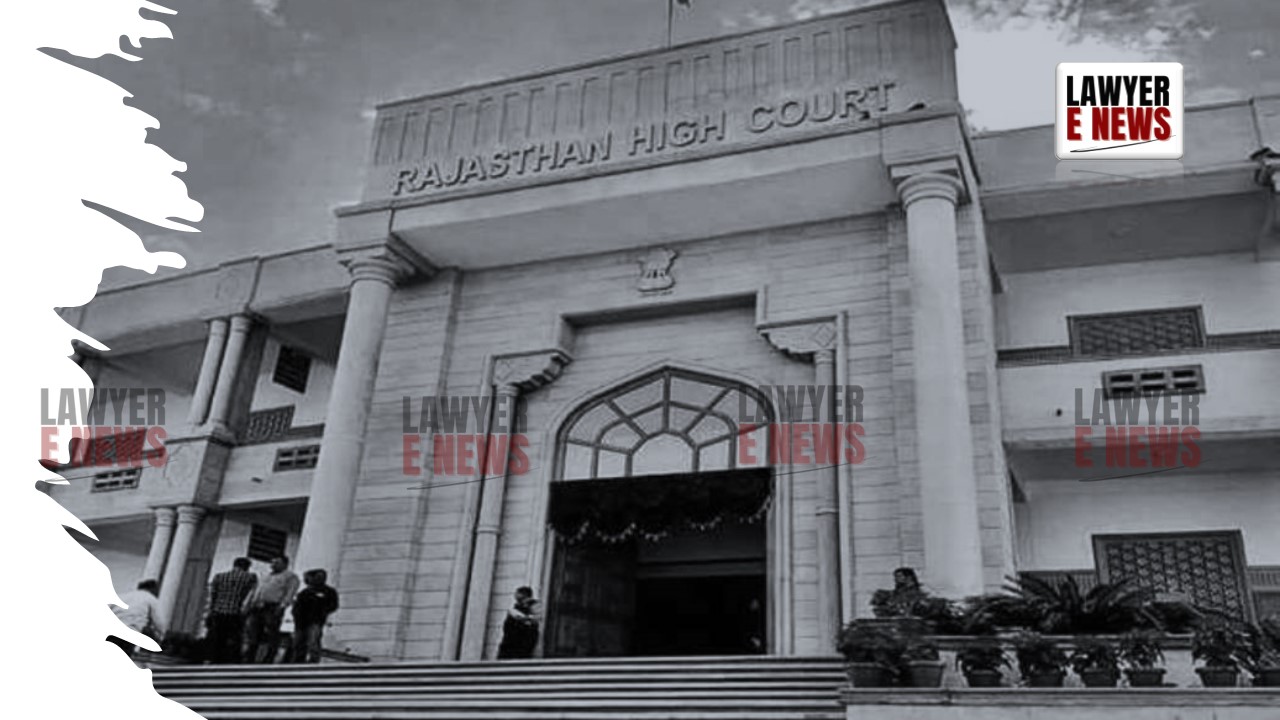-
by sayum
21 February 2026 2:44 PM



“The appointment of candidates who were declared successful only after revision of the selection criteria and lowering of cut-off marks is patently illegal” – In a powerful rebuke to arbitrary state action in public employment, the Rajasthan High Court, Jaipur Bench, struck down the appointments of candidates who were declared qualified only after the retrospective lowering of cut-off marks in the recruitment for Junior Accountant and Tehsil Revenue Accountant posts. The Court held that such a move was a "colourable exercise of power" and amounted to a violation of the equality clause under Articles 14 and 16 of the Constitution.
The Rajasthan Staff Selection Board had issued an advertisement for the posts of Junior Accountant and Tehsil Revenue Accountant under the 2013 recruitment rules. The examination was conducted, merit was drawn, and cut-off marks were published. Candidates who secured marks below the fixed cut-off were not included in the selection.
However, after appointments had been made based on the original cut-off, the Board, in a subsequent move, revised the selection criteria and reduced the cut-off marks, thereby enabling a new group of candidates — previously disqualified — to be declared qualified and appointed. These appointments were challenged by higher-scoring candidates who were unjustly left out.
The Court was faced with the question of whether appointments made after the retrospective revision of selection criteria could stand the test of legality and fairness.
Justice Birendra Kumar, delivering the judgment, emphatically stated: “The authority cannot revise or modify the cut-off marks after declaring the result and making appointments. It amounts to changing the rules of the game after it has started.”
The Court condemned the post-result alteration as fundamentally unjust: “Such a change has the effect of depriving meritorious candidates of their legitimate expectation and right to fair selection.”
On the doctrine of fairness in recruitment, the Court quoted the settled principle that: “Once the rules of the game are set, they cannot be changed midway to accommodate certain candidates.”
The act of revising cut-offs and adjusting appointments post-facto was termed a “colourable exercise of power”, implying it was carried out under the guise of administrative discretion but was in essence unlawful and discriminatory.
The Court relied on key Supreme Court decisions including:
K. Manjusree v. State of Andhra Pradesh, where the apex court struck down post-examination modifications to selection criteria.
Y.V. Rangaiah v. J. Sreenivasa Rao, where it was held that recruitment must be governed by rules in force at the time of advertisement.
Union of India v. N. Chandrasekharan, affirming that rules cannot be changed retrospectively to benefit a select few.
The High Court declared that the appointments made after the cut-off revision were in direct conflict with constitutional principles. It held: “Appointments made in such manner amount to a colourable exercise of power and are liable to be quashed.”
The State was directed to reconsider the selection strictly on the basis of the originally declared cut-off, thus preserving the merit and sanctity of the recruitment process.
This ruling sends a clear and strong message: public recruitment must remain transparent, rule-bound, and insulated from arbitrary post-facto interventions. By invalidating appointments secured through retroactive dilution of standards, the Court has upheld the constitutional mandate of equality and non-discrimination.
“Changing the selection criteria after the declaration of results is antithetical to the concept of fairness in public employment,” the Court concluded.
Date of Decision: 05 May 2025
